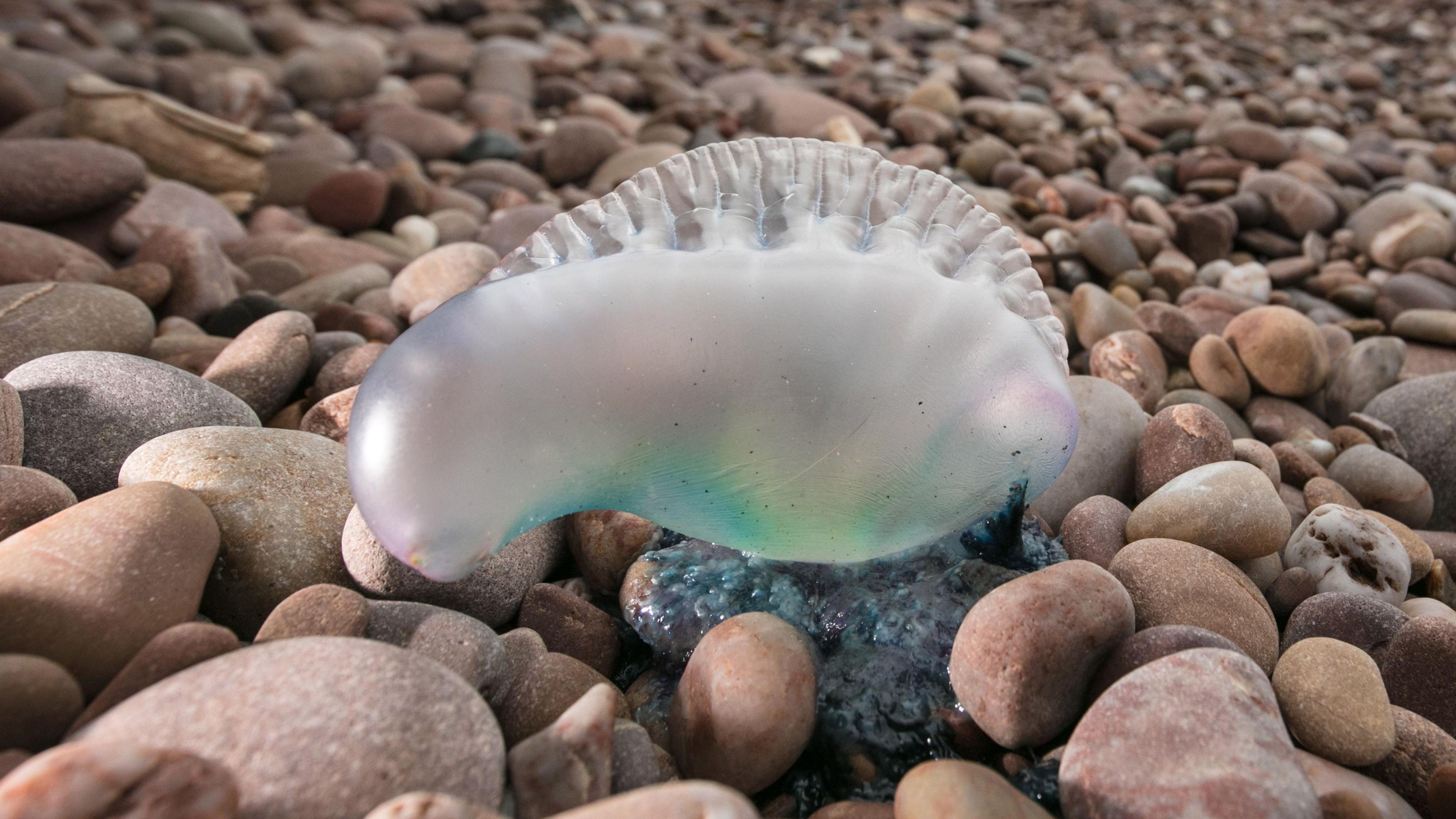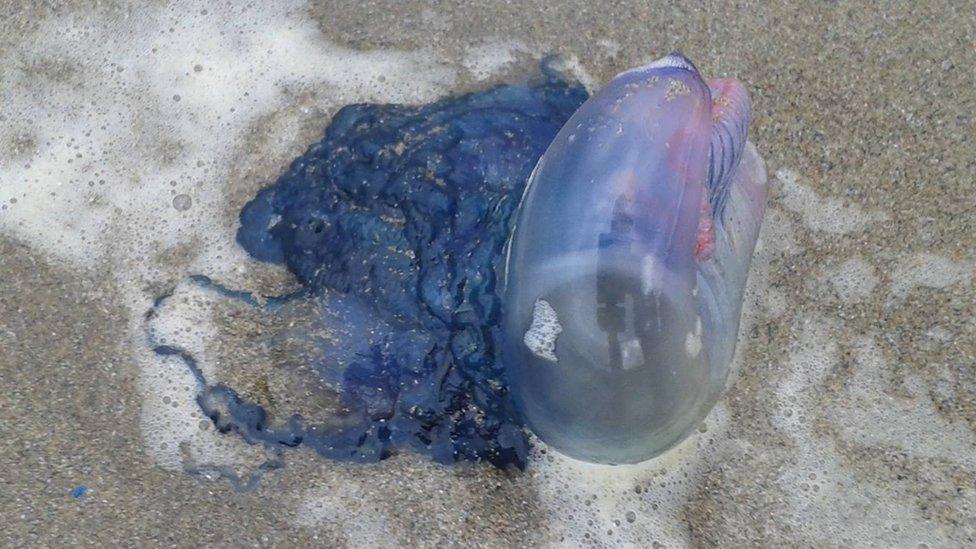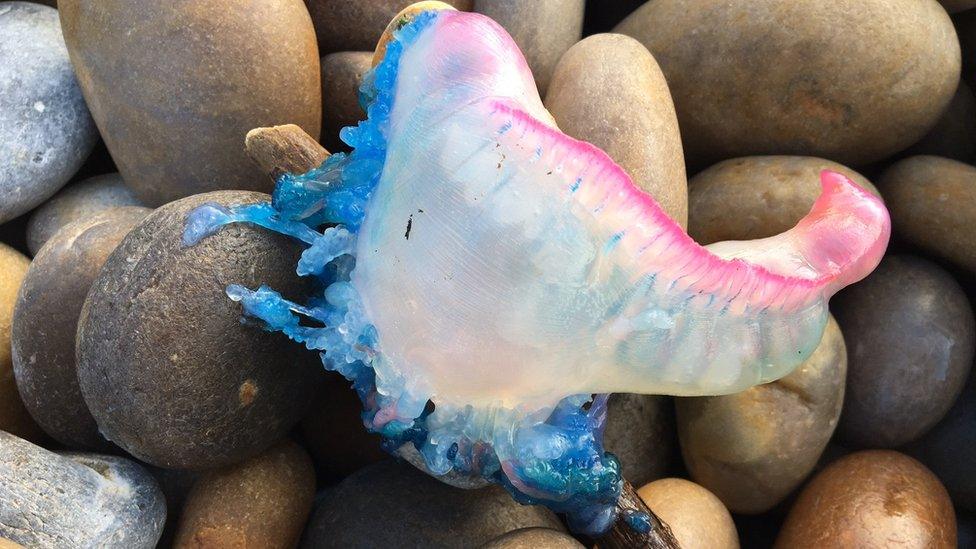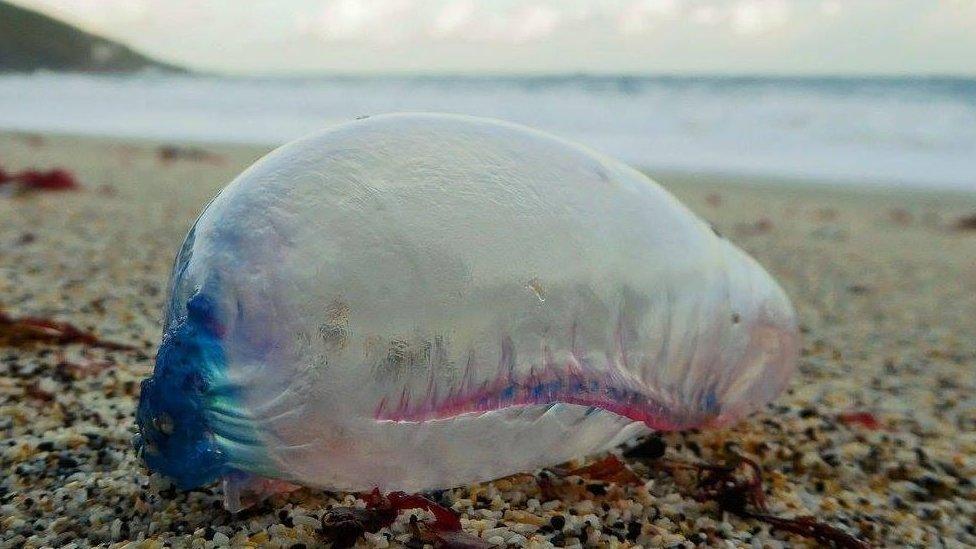Alert after Portuguese man o' war reports

Despite looking similar, the Portuguese man o' war is a siphonophore, not a jellyfish
- Published
Beachgoers are being urged to be careful following reports of Portuguese man o' war washing up on Sussex beaches.
Hastings Borough Council shared the warning about the potentially-dangerous type of siphonophore, similar to the jellyfish.
"It is important not to touch them, as stings can be very painful and in rare cases potentially fatal," the authority said in a post to X, external, formerly known as Twitter.
Sussex Wildlife Trust said the sightings could be linked to recent stormy weather.
The Portuguese man o' war lives on the surface of the water, using its balloon-like float as a sail to propel it along, with long tentacles trailing underneath to capture prey.
The unusual name for the species comes from the shape of the sail which, when inflated, looks like an 18th Century Portuguese battle ship.
Allow X content?
This article contains content provided by X. We ask for your permission before anything is loaded, as they may be using cookies and other technologies. You may want to read X’s cookie policy, external and privacy policy, external before accepting. To view this content choose ‘accept and continue’.
A spokesperson for the trust said the creatures are likely being washed up onto Sussex shores due to recent strong winds and storms.
"Portuguese Man O’ War float on the surface of the water and cannot swim, so they are swept along by the wind and currents," they said.
"They get washed up on the south coast of England when caught in strong westerly winds."
The trust has urged people to "admire these beautiful creatures from afar".
Follow BBC South East on Facebook, external, on X, external, and on Instagram, external. Send your story ideas to southeasttoday@bbc.co.uk, external.
Related topics
- Published13 October 2017

- Published9 November 2023

- Published13 September 2017
